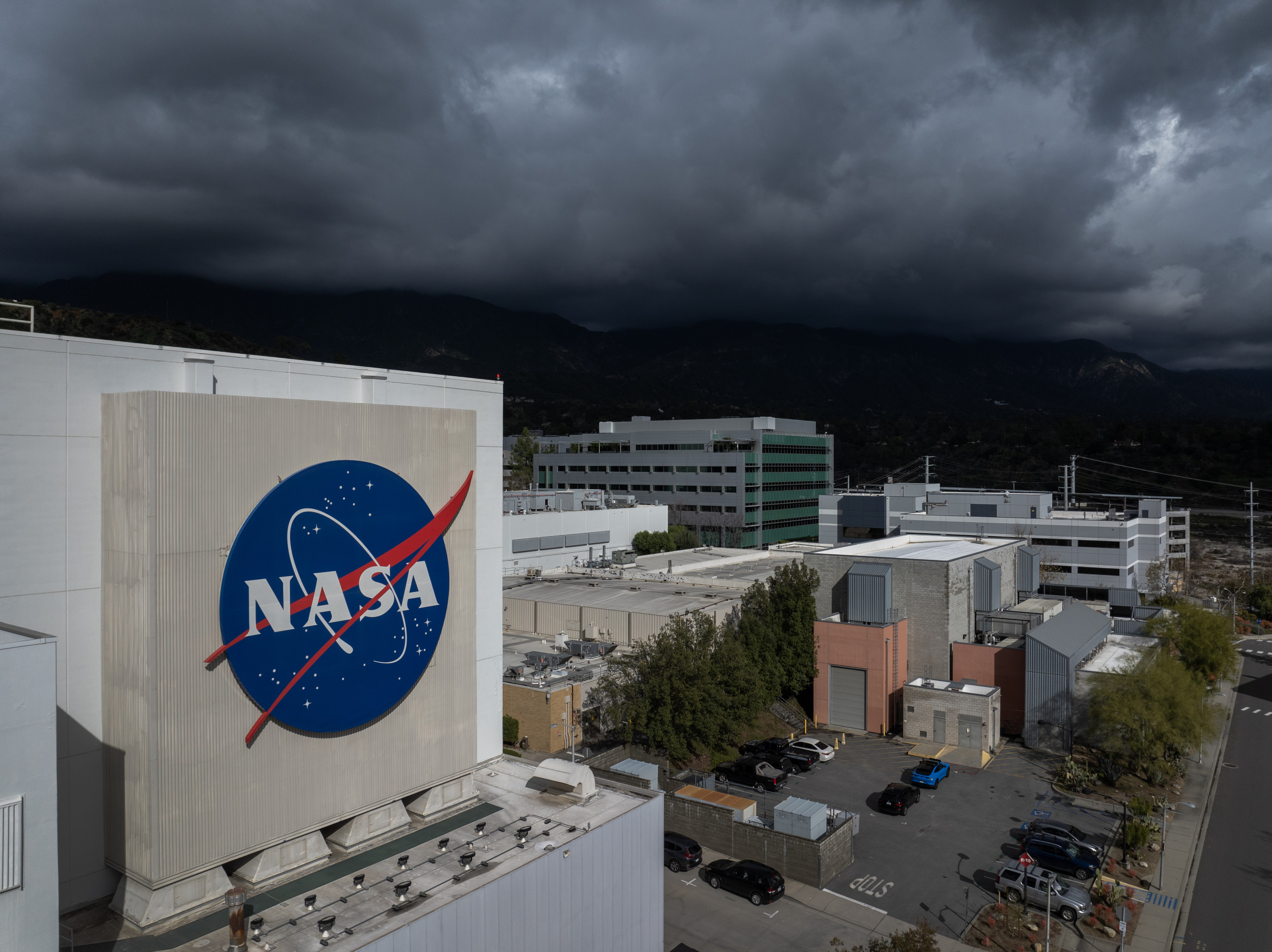
The Jet Propulsion Laboratory (JPL), a leading center for robotic space exploration run by NASA and Caltech, announced layoffs of around 325 employees, about 5 percent of its workforce.
This comes after JPL previously cut 8 percent of its staff this past February because of budget constraints.
JPL Director Laurie Leshin cited “funding challenges and projections” as the reason for the latest workforce reduction in a memo to employees on November 12. The layoffs will affect technical, business and support areas across the lab.
Leshin said the layoffs are “painful but necessary adjustments” to adhere to JPL’s 2025 financial year budget allocation.
David McNew/Getty
Analysts see the cuts as a symptom of broader pressures facing NASA‘s budget. Martin Barstow, a University of Leicester professor of astrophysics and space science who works with several arms of the space agency, said similar layoffs have been seen elsewhere.
“What I think is happening at JPL is already happening a bit on the East Coast side with reductions to Hubble Space Telescope activities, for example,” Barstow told Newsweek. “It’s a budget issue at the moment around various projects.”
One major project facing challenges is the Mars Sample Return (MSR) mission, led by JPL, which aims to bring Martian rock and soil samples back to Earth for in-depth analysis.
Barstow said this effort has “run into trouble because it’s looking like it’s going to cost a lot more than could be afforded, so everything needs to be restructured.”
This sentiment was echoed in April by NASA Administrator Bill Nelson, who said in a statement on the MSR mission that “the bottom line is, an $11 billion budget is too expensive, and a 2040 return date is too far away.”
Though MSR was not specifically mentioned by Leshin as a reason for the latest round of layoffs—funding shortfalls more generally were cited—the project was central in the February job cuts. NASA will decide on the future of the mission by the end of this year, according to the website SpaceNews.
Despite the layoffs, Barstow expressed confidence that space exploration is in a good place, with NASA and its partners finding ways to adapt to budget constraints.
In particular, he expressed optimism over the involvement of the private sector, with companies like SpaceX “transforming space business” by, among other things, lowering the cost of launching rockets.
As for the MSR program, he said: “I’m sure that some return [of Mars samples] will happen, but perhaps not in the form looked at so far.”
JPL, home to iconic missions like Voyager and Curiosity and the cameras on the James Webb Space Telescope, has weathered workforce reductions before.
Leshin assured employees that this round of layoffs should be the last “in the foreseeable future” as JPL rightsizes its workforce.
Do you have a tip on a science story that Newsweek should be covering? Do you have a question about NASA? Let us know via science@newsweek.com.
